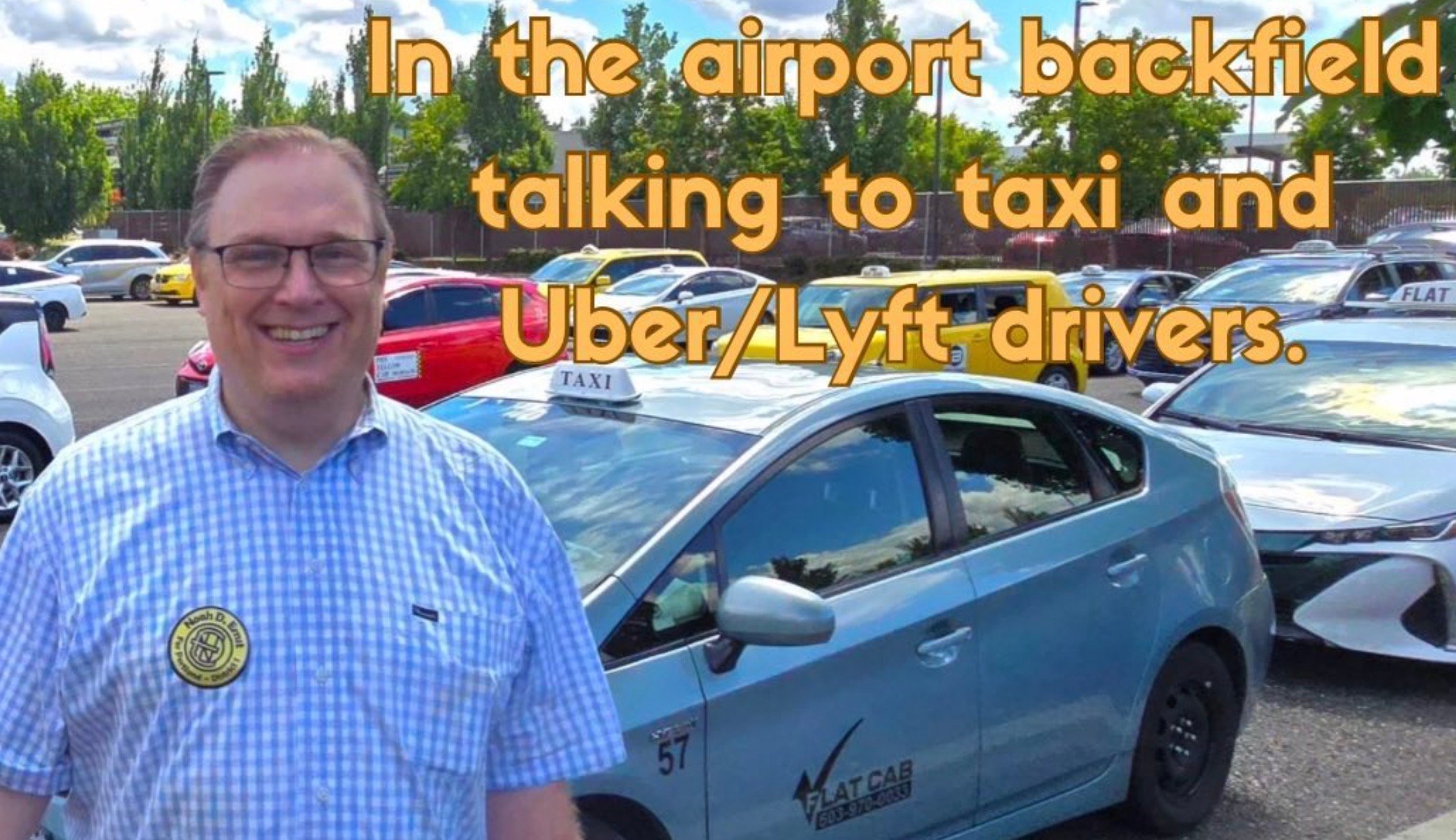Portland City Council Candidate Noah Ernst Involved in Accident with Drunk Driver

Noah Ernst, a prominent candidate for City Council District 1, has been in the spotlight recently due to an unfortunate incident where he was struck by a drunk driver while working as a cab driver. This event occurred on Sunday as Ernst was navigating SW 15th Avenue, crossing onto W Burnside. Fortunately, the collision was at a low speed, and Ernst did not sustain serious injuries. The driver responsible for the accident was cited for driving under the influence.
Ernst's involvement in a traffic accident is particularly significant given his vocal criticism of Portland's traffic safety policies. He has been an ardent advocate for improving the city’s approach to transportation, often highlighting the need for substantial changes to ensure safer streets. In a statement to KGW, he expressed his frustration over the incident, stating, "It’s certainly incredibly frustrating, but at the same time, at least, I can use myself as an example to say, ‘Look how badly things are going. Look how we need to make changes to make Portland a better and safer place.’"
In light of this incident, it’s worth noting that the Portland Bureau of Transportation (PBOT) recently reduced the speed limit on W Burnside to 20 mph in the area where Ernst was hit. While some may question the effectiveness of speed limit reductions without enforcement, this change is a significant step towards enhancing safety on a major thoroughfare.
Ernst believes that more critics like him are essential for fostering healthy discussions about Portland's transportation challenges, particularly regarding the dangerous conditions on east Portland arterials. He argues that the current PBOT strategies are overly punitive towards drivers and that the city should focus on making driving easier to prevent accidents.
One of Ernst's key proposals includes removing the recently installed center median on SE Division, which he claims has increased danger and negatively impacted local businesses. He contends that PBOT's road designs have contributed to congestion, asserting that Portland ranks among the “10 worst cities to drive in.” Unlike some of his opponents, Ernst avoids using a “war on cars” narrative, but he clearly advocates for a more driver-friendly approach.
In a recent episode of the NW Fresh Podcast, Ernst criticized the influence of a bicycle committee that advises PBOT, noting that cyclists represent a small fraction of commuters. He pointed out that while cyclists make up less than 5% of the commuting population, the majority of daily commuters travel by car, yet they lack representation in transportation policy discussions.
As a former cab driver and current legal counsel for a cab company, Ernst's perspective is shaped by his experiences in the industry. However, his claims about PBOT's advisory committees may not fully reflect the reality of how these groups operate. PBOT has three main transportation advisory committees focused on bicycling, pedestrian issues, and freight, with the freight committee being particularly influential in advocating for pro-driving policies.
Ernst's stance is that improving conditions for drivers can coexist with enhancing safety for all road users. He suggests that stricter enforcement against impaired and speeding drivers during late-night hours could reduce accidents without impeding traffic flow during peak commuting times. In his campaign literature, he emphasizes the need for elected officials to recognize Portland's driving challenges and to restore lanes that have been removed.
While Ernst's commitment to addressing transportation issues is commendable, his views may be influenced by his professional background and personal preferences. The notion that Portland can simultaneously accommodate free-flowing traffic for drivers while increasing the number of non-driving commuters is optimistic at best. Moreover, placing the onus of safe driving solely on law enforcement overlooks the critical role that street design plays in ensuring safety.
Finally, Ernst's comments regarding PBOT advisory committees highlight a broader need for a Driving Advisory Committee to ensure that drivers' perspectives are adequately represented in transportation discussions. Engaging in open dialogue among diverse viewpoints can lead to more effective solutions for Portland's transportation challenges.
As the campaign progresses, it will be interesting to see how Ernst's experiences and insights shape his proposals for a safer and more efficient transportation system in Portland.